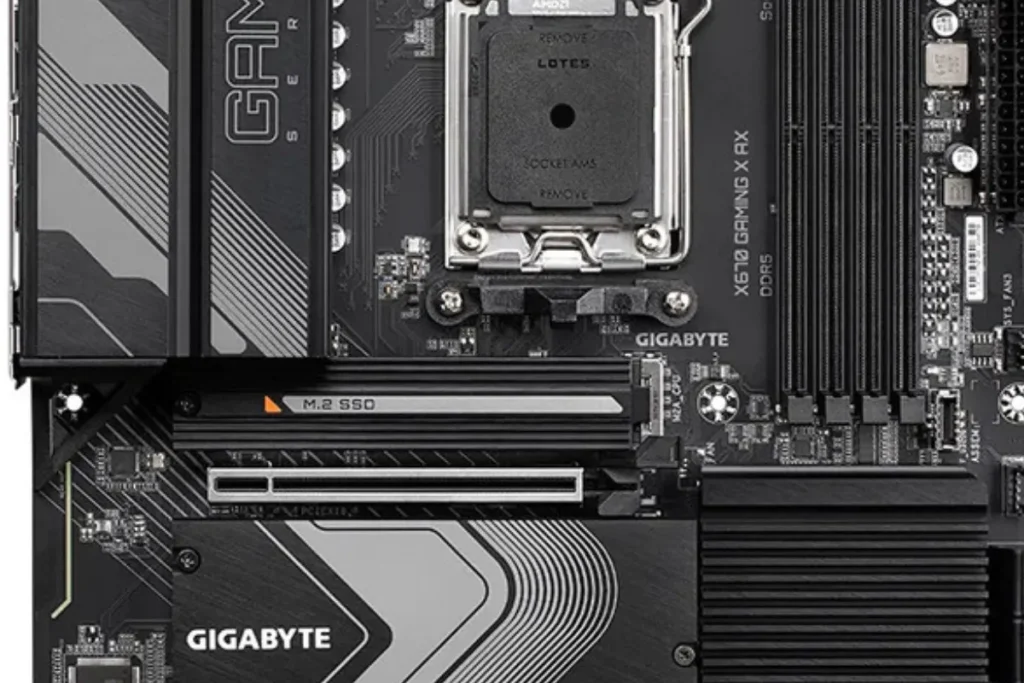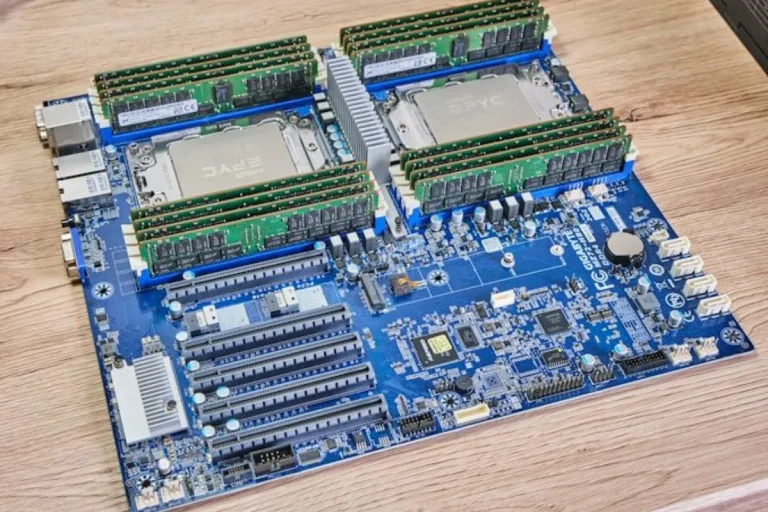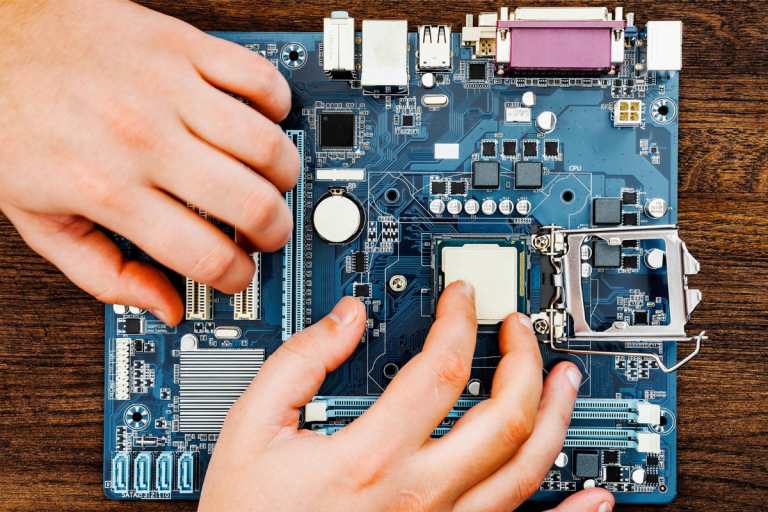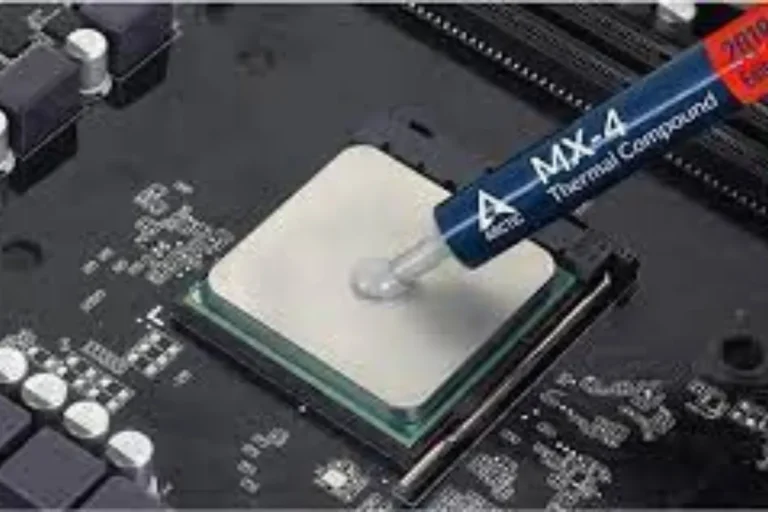Is Gigabyte better than the ASUS motherboard for gaming?
Are you wondering if Gigabyte is better than ASUS in gaming? Well, look no further! In this article, we’ll dive into the world of motherboards and compare the two renowned brands. Whether you’re a casual gamer or a hardcore enthusiast, we’ll break down the key aspects in a simple and engaging manner.
Gigabyte Motherboards for Gaming
Gigabyte is a well-established brand in the gaming industry, known for its exceptional reputation and high-quality products. When it comes to gaming motherboards, Gigabyte does not disappoint. Let’s explore why Gigabyte is a popular choice among gamers and what unique features and benefits their motherboards offer.
Gigabyte has made a name for itself by delivering top-notch performance and reliability. Their motherboards are designed with gamers in mind, ensuring a seamless gaming experience. With advanced technologies and innovative features, Gigabyte motherboards provide gamers with the edge they need to excel in their gaming endeavors.
One of the standout features of Gigabyte motherboards is their superior cooling system. Gaming can put a lot of strain on the components, leading to overheating issues. Gigabyte addresses this problem with its cutting-edge cooling solutions, ensuring optimal temperature control and preventing any performance throttling.
Furthermore, Gigabyte motherboards offer excellent overclocking capabilities. Overclocking allows gamers to push their hardware beyond the factory settings, unlocking additional performance potential. Gigabyte’s motherboards are equipped with robust power delivery systems and advanced BIOS options, making it easier for users to safely overclock their CPUs and achieve higher clock speeds.
When it comes to popular Gigabyte motherboard models suitable for gaming, the Gigabyte Aorus Pro and Gigabyte Gaming X are worth mentioning. These models offer a perfect balance of performance, features, and affordability, making them ideal choices for gamers of all levels.
With support for the latest processors, ample connectivity options, and top-notch audio quality, these motherboards provide a solid foundation for any gaming rig.
ASUS Motherboards for Gaming
ASUS is a name that resonates strongly in the gaming community, thanks to their commitment to delivering top-notch products. In this section, we will delve into the world of ASUS motherboards for gaming, exploring their features, and advantages, and highlighting some of the popular models favored by gamers.
As a well-known brand, ASUS has established itself as a force to be reckoned with in the gaming industry. Their dedication to innovation and quality has made them a go-to choice for gamers worldwide. When it comes to motherboards, ASUS has a stellar reputation for delivering exceptional performance and reliability.
ASUS motherboards boast a wide range of features specifically tailored for gaming enthusiasts. One advantage is their extensive support for various processors, including the latest generation CPUs. This flexibility allows gamers to choose the hardware that suits their needs, ensuring compatibility and optimal performance.
Additionally, ASUS motherboards excel in providing robust connectivity options. With multiple USB ports, PCIe slots, and M.2 slots, gamers can effortlessly connect their preferred peripherals, graphics cards, and storage devices. This versatility enables seamless expansion and customization of gaming rigs to suit individual preferences.
ASUS is also known for incorporating advanced technologies into their motherboards. Features like advanced cooling solutions, enhanced audio systems, and optimized power delivery contribute to an immersive and enjoyable gaming experience. These elements work in harmony to provide stability, reduce latency, and enhance overall performance.
Some of the popular ASUS motherboard models favored by gamers include the ASUS ROG Strix series and the ASUS TUF Gaming series. These models offer a perfect blend of performance, durability, and aesthetics.
With their sleek designs, RGB lighting options, and impressive overclocking capabilities, these motherboards cater to gamers who demand both style and substance.
Comparing Gigabyte and ASUS Motherboards

When it comes to choosing a motherboard for your gaming rig, two prominent brands that often come to mind are Gigabyte and ASUS. In this section, we will compare the key features, performance, reliability, and user opinions of both brands to help you make an informed decision.
Gigabyte and ASUS are well-known names in the gaming industry, each with its own set of strengths. Gigabyte is recognized for its exceptional cooling systems and overclocking capabilities, while ASUS is praised for its extensive connectivity options and advanced technologies.
In terms of performance, both brands deliver outstanding results. Gigabyte’s motherboards are often favored by gamers who prioritize efficient heat dissipation and stable overclocking, ensuring optimal performance even during intense gaming sessions.
On the other hand, ASUS motherboards excel in providing a wide range of connectivity options, allowing gamers to connect multiple devices and expand their gaming setups effortlessly.
To get a better understanding of user opinions, it’s crucial to consider reviews and feedback. Many users appreciate Gigabyte for its reliability and durability, often mentioning the longevity of their motherboards. However, ASUS receives praise for its user-friendly BIOS interface, customer support, and aesthetic appeal.
Price, compatibility, and customer support are also important factors to consider. Gigabyte motherboards tend to be priced more competitively, making them an attractive option for budget-conscious gamers.
ASUS, on the other hand, offers a wider range of options across different price points, ensuring there’s something for everyone. In terms of compatibility, both brands provide excellent support for the latest processors and components.
When it comes to customer support, both Gigabyte and ASUS have established reliable systems. Gigabyte is known for its prompt responses and helpful customer service, while ASUS offers comprehensive online resources and a vast community of users who are always ready to assist.
Frequently Asked Questions
1. What CPU compatibility should I look for in a gaming motherboard?
When selecting a gaming motherboard, ensure it supports the specific CPU socket type that your processor requires. Common socket types include Intel’s LGA 1151 and AMD’s AM4.
2. How important is RAM support in a gaming motherboard?
RAM support is crucial for optimal gaming performance. Look for a motherboard that supports the desired RAM speed, capacity, and type (DDR4 is the current standard).
3. What expansion slots should I consider for future upgrades?
For future-proofing your gaming setup, prioritize motherboards with PCIe slots. These allow for adding dedicated graphics cards, NVMe SSDs, sound cards, and other expansion cards.
4. What connectivity options are important in gaming motherboards?
Look for motherboards with sufficient USB ports (both USB 3.0 and USB 2.0), audio jacks, and Ethernet ports. Additionally, consider support for Wi-Fi and Bluetooth if wireless connectivity is desired.
5. Are overclocking capabilities important for gaming motherboards?
Overclocking can boost gaming performance, so if you plan to overclock your CPU or RAM, ensure the motherboard supports it. Look for features like robust power delivery, BIOS options, and cooling solutions.
Conclusion
when it comes to deciding whether Gigabyte is better than ASUS for gaming motherboards, it ultimately boils down to personal preferences and specific requirements. Both brands offer exceptional options with their own strengths. Consider factors like cooling systems, connectivity options, and user reviews to make an informed decision that suits your gaming needs.




